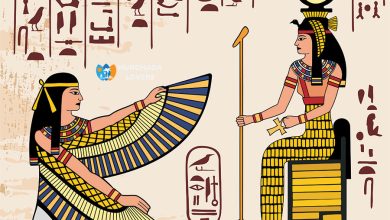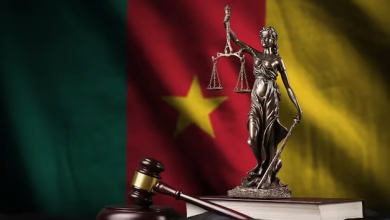The Vanishing Jury: A Historical Journey Through Africa’s Forgotten Justice Tool
By James Oyo Jnr | Law Student

In the heart of many Western courtrooms, a group of 12 peers sits quietly, listening, observing, and eventually determining the fate of the accused. This concept—trial by jury—is often romanticized as the cornerstone of justice and democracy. But in Africa, the jury is almost absent. Where did it go? Did it ever truly belong? And what does its quiet disappearance tell us about the African quest for justice?
Imported Justice: The Colonial Foundation
The story of juries in Africa begins not in the dusty courts of pre-colonial kingdoms, but in the grand designs of colonial empires. The British, in particular, exported the jury system to their colonies as part of the broader Common Law tradition. In countries like Ghana (then the Gold Coast), Nigeria, Kenya, and Sierra Leone, colonial administrators established jury trials—though often limited to certain regions or cases involving Europeans and elites.
In Lagos, for example, the jury system existed during British rule, but participation was restricted to a narrow elite class—literate, male, and mostly of European descent or Western-educated Africans. In many cases, Africans were judged by foreign juries or by colonial judges with no ties to the communities of the accused.
What was billed as “justice by peers” was, in practice, justice by strangers.
Post-Independence: A Wave of Rejection
Following the wave of independence in the 1950s and 60s, many African states undertook legal reforms that radically reshaped their systems. One of the quietest but most significant casualties was the jury.
In Ghana, jury trials were retained for capital cases but gradually fell out of favor due to inefficiencies and the difficulty of assembling educated, impartial juries. In Nigeria, the jury system was limited mostly to Lagos and was eventually abolished in 1976 after complaints about delays, inconsistent verdicts, and widespread juror intimidation.
Across the continent, former British colonies began to shift to judge-led trials. In Francophone Africa—where civil law systems were more prevalent—the jury was never a major feature to begin with. Trials were typically led by professional judges with optional lay assessors, maintaining more centralized control.
Why Africa Turned Away From the Jury
The reasons for the jury’s demise in Africa were complex and context-specific, but a few themes emerged across the board:
-
Low Literacy and Education Levels: In the decades following independence, many African countries faced low education rates. Jurors could not always read or understand court proceedings, making them unreliable decision-makers.
-
Ethnic and Tribal Tensions: Diverse societies meant that selecting a truly neutral jury was difficult. Ethnic bias or tribal loyalty could cloud judgment, especially in sensitive or political cases.
-
Cost and Delays: Assembling a jury was expensive, time-consuming, and often delayed proceedings. In resource-constrained justice systems, this was a burden many states could not afford.
-
Corruption and Manipulation: Jurors were often vulnerable to bribes, threats, or political pressure, especially in high-profile trials. Judges, at least in theory, were better trained and more protected.
-
Public Confidence in Judges: Ironically, in some contexts, the public had more confidence in trained judges than in randomly selected laypersons—especially when it came to complex legal matters.
A Justice System Out of Sync?
But the disappearance of juries raises deeper questions: Was trial by jury ever truly African? Or was it another colonial transplant that never took root?
In pre-colonial Africa, justice was often community-driven, but not in the Western jury sense. Disputes were settled by councils of elders, spiritual leaders, or village chiefs—individuals respected for wisdom, not chosen at random. These systems prioritized restorative justice over punishment. They aimed for harmony, not verdicts.
The colonial jury system ignored these indigenous models and imposed an unfamiliar structure that was culturally and logistically misaligned with the realities on the ground.
A Lost Opportunity or a Wise Departure?
There are two schools of thought in today’s legal discourse. One sees the jury’s disappearance as a loss—a missed opportunity for democratizing justice. The other sees it as a necessary evolution toward systems better suited to African realities.
Could Africa reimagine the jury? Perhaps not in its Western form, but maybe through hybrid systems—where communities have a say in justice but within a framework that’s locally grounded, literate, and fair.
South Africa briefly considered reintroducing juries after apartheid but ultimately rejected the idea. The fear was that juries might replicate existing racial or class biases rather than eliminate them.
Lessons From the Past, Questions for the Future
The history of juries in Africa is not just a legal curiosity; it’s a mirror. It reflects the tensions between imported systems and indigenous values, between elite control and popular participation, and between efficiency and fairness.
In today’s Africa, where justice is often delayed or denied, some argue that more citizen participation, not less, is what’s needed. But whether that participation should take the form of juries—or something new entirely—is a question still unanswered.
As African legal minds chart a future shaped by both tradition and innovation, the jury may not be dead. It may just be waiting to be reborn—on Africa’s own terms.
About the Author
James Oyo Jnr is a student of the Law—a writer of Legal Africa Magazine and a passionate advocate for justice systems that work for the people they serve.




